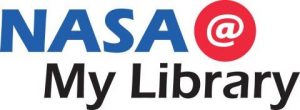MSU ECE selected for national NASA@ My Library STEAM programming initiative
September 15, 2021
 Mississippi State University’s Electrical and Computer Engineering (ECE) Department has been selected through a competitive application process to be part of NASA@ My Library, an education initiative created to increase and enhance STEAM (science, technology, engineering, arts and math) learning opportunities for library patrons throughout the nation, including geographic areas and populations currently underrepresented in STEAM education.
Mississippi State University’s Electrical and Computer Engineering (ECE) Department has been selected through a competitive application process to be part of NASA@ My Library, an education initiative created to increase and enhance STEAM (science, technology, engineering, arts and math) learning opportunities for library patrons throughout the nation, including geographic areas and populations currently underrepresented in STEAM education.
“Mississippi State is one of just 6 universities nationwide to be selected to support this initiative, and we’re thrilled to be part of this project,” said Jean Mohammadi-Aragh, assistant professor in the ECE department. “We look forward to our students helping libraries bring electrical and computer engineering concepts to younger patrons and exploring the universe together with people of all ages during their public programs in 2021 and 2022.”
As a NASA@ My Library Partner University, MSU ECE students will provide near-peer subject matter experts from undergraduate and graduate programs to libraries as they explore NASA science and technology, specifically around NASA’s James Webb Space Telescope Launch (fall 2021), the James Webb Space Telescope First Image (spring 2022), and as part of the Collaborative Summer Library Program (summer 2022).
Through this funding, along with support by the NASA@ My Library team, MSU will support students and libraries to conduct relevant and engaging NASA STEAM programming and activities. NASA@ My Library will create compelling learning experiences for communities across the United States and share the story, science, and adventure of NASA’s scientific explorations of planet Earth, our solar system and the universe beyond.
NASA@ My Library is offered by the National Center for Interactive Learning (NCIL) at the Space Science Institute (SSI) in partnership with the ALA Public Programs Office, Lunar and Planetary Institute (LPI) and Education Development Center (EDC). This material is based upon work supported by the National Aeronautics and Space Administration under cooperative agreement No. NNX16AE30A. This work was also assisted and supported by the Space Science Institute, which was the recipient of the cooperative agreement. Any opinions, findings, and conclusions or recommendations expressed in this material are those of the author(s) and do not necessarily reflect the views of NASA or the Space Science Institute.
Learn more about Dr. Mohammadi-Aragh and her research by visiting her website.
The Department of Electrical and Computer Engineering at Mississippi State University consists of 23 faculty members (including 7 endowed professors), 3 clinical faculty, 10 professional and support staff, and over 700 undergraduate and graduate students with approximately 88 being at the Ph.D. level. With research expenditure of the department in excess of $10M, the department houses the largest High Voltage Laboratory among North American Universities. For more detailed information on the department please visit our website www.ece.msstate.edu.
